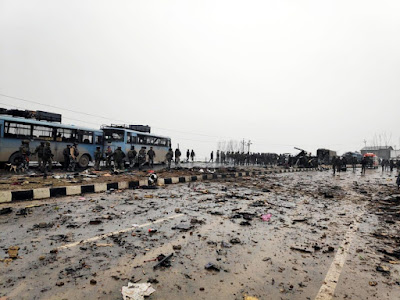Due to heavy rain and flood many schools shut down at Kerala. all Kerala educational institutes to announce a holiday for three days, jams brought Kerala border to a halt, and most of the employees couldn’t carry out a day’s work.
This was what the week amounted to before Independence Day.
Come August 15, there is no escaping the celebration of India — from shopping malls and traffic intersections to greeting cards and school events. However, this past week, India arrived as it is at our doorstep — with broken infrastructure, rising religiosity, and zero accountability.
When we were young, no one had to tell us to love our country. Raised on tales of “valor of freedom fighters” on books and on big and small screens, we questioned little and believed much. Living with deprivation was not considered a failing of the state but a sign of human strength. Our reference points were the Russian books on the market, available at affordable rates due to Delhi’s long fondness for Moscow. Power cuts, ration lines, milk scarcity, late trains, dry taps — we lived with them with an understanding smile.
We went to convent schools, learned to pray at peaceful churches, enjoyed langars at neat gurdwaras, and jostled through long queues at sweaty temples. Schools were six days a week, and without the long list of religious holidays on the calendar. Moral outrage over any of the above was unheard of.
When India played anybody, we knew where our loyalties lay. When India played Pakistan, we worked ourselves up into a war. When India got beaten, we believed in wrongdoing.
The new generation, of my children and their friends, is a generation without blinkers. Even if it didn’t have the IPL to muddy those country boundaries. They know what they want, they demand what they need, and they don’t see a wrong for a right. The world is all around them, and the country they live in increasingly figures nowhere in it.
What does Independence Day mean for them, except for an extra school holiday? How can the prime minister giving a speech from the Red Fort stir them out of bed? Or even the neighborhood flag-hoisting, an event the fractious residents’ welfare association now organises with admirable loyalty?
What is this hard-won freedom that 72 years later hasn’t ensured a road outside our colony that can last a rain? Or a garbage dump that won’t spill over to the road? Why is it unsafe for them to cross a road alone and for others safe enough to live on the divider? Why does a temple get away with keeping the neighbourhood awake for the night, and a party next-door invite the police? Why is porn such a taboo, and rape such a given? What makes Bollywood tick, and the censor pick? What if they skip yoga class, and play football? Even, who is Radhe Maa?
Over the years, their questions have been growing louder, and my answers fainter. So, this time, around the corner from Independence Day, when my daughter started learning about 1857, Rani Jhansi and Robert Clive, I didn’t try to quash the first seed of doubt in her about the India glorious. India, I told her — my arms resting on a book with a picture of Laxmi Bai on a horse and a child strapped to her back — was at the time just a lot of principalities fighting against each other. The British may have done us a favour or two, in forging the India we know. If it still looks like pulling at the seams, that’s because we have miles to go. She nodded, more piqued about Mir Jafar’s betrayal than Laxmi Bai’s bravery. My job, I thought, was done.



No comments:
Post a Comment